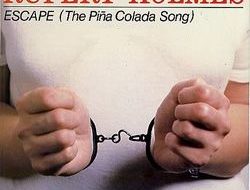 Illustration from Edward Lear?s Book of Nonsense
Illustration from Edward Lear?s Book of Nonsense
For Limerick Day, Meghan Phillips takes us through the unbawdy history of Limericks.
On Tuesdays, the library closes at 8:00 p.m. The staff stays until at least 8:30 p.m., balancing the cash drawer, folding the newspapers in the lobby, and shelving books. This particular Tuesday I was shelving a stack of children?s poetry books.
?Hey Maryanne?? I called to our children?s librarian.
?Yes,? she replied from across the room where she was putting the plastic food from the play kitchen into a bucket.
?So, I said I?d write an essay about limericks.?
?About limericks??
?Yeah, and I don?t know any that aren?t dirty.?
Maryanne laughed and told me to check out Edwards Lear?s A Book of Nonsense. She also composed an impromptu limerick about writing an essay about limericks that I forgot within minutes of hearing it. I?m still upset about this; it rhymed ?dog? and ?blog? and was pretty adorable. Because she is a children?s librarian and children?s librarians are knowledgeable and patient and lovely, Maryanne?s recommendation turned out to be the perfect place to start researching limericks.
Lear?s A Book of Nonsense was first published in 1846 and reprinted in 1863. It contained over 100 five-line poems, like this one:
There was a Young Lady whose nose,Was so long that it reached to her toes;So she hired an Old Lady,Whose conduct was steady,To carry that wonderful nose.
Lear?s book was immensely popular and inspired the British humor magazine Punch to start publishing limericks, jump-starting the English ?limerick craze? (The Victorian era was full of bizarre crazes, it seems.). Punch ran limerick contests through the 1860s, featuring the winners in its pages. Inevitably, the limericks submitted became raunchier and raunchier, and the magazine had to suspend the contest.
Though Lear is often credited with inventing the single stanza and AABBA rhyme scheme that defines the limerick form, these little poems have been around since at least the 11th century. The etymology blog Haggard Hawks attributes the form to a 13th-century prayer by Thomas Aquinas. Limericks show up as drinking songs in several of Shakespeare?s plays, including Othello and The Tempest. Nursery rhymes that are still popular today, like ?Hickory Dickory Dock? and ?Little Miss Muffet,? are limericks and were published as early as 1744 in books like Tommy Thumb?s Pretty Song Book and Mother Goose?s Melodies.
While there?s something inherently childlike about the limerick, most people (myself included) probably think of limericks as bawdy or dirty. There is absolutely 100% no shame in that. In fact, the origin of the limerick is just as much smutty as it is G-rated.
The actual term ?limerick? is most likely taken from an old drinking game (!!!) popular among British soldiers, where drinkers would improvise a witty or ribald song. Each drinker would make up a five-line verse, then they?d all join together in the chorus with the refrain ?Will you come up to Limerick??
Perhaps the most infamous limerick of all, ?There once was a man from Nantucket,? though not a drinking song, was published in 1902 in an issue of the Princeton Tiger, the university?s humor magazine:
There once was a man from NantucketWho kept all his cash in a bucket.But his daughter, named Nan,Ran away with a manAnd as for the bucket, Nantucket.
This clean version was quickly followed by many filthy variations (which I won?t include, but you probably know at least one).
And of course it?s the dirty ones that have become the limerick?s legacy, popping up in movies and television to simultaneously poke fun at ?serious poetry? and the people who don?t know anything about serious poetry. In both Woody Allen?s What?s Up, Tiger Lily? and Steven Soderbergh?s Solaris, the male protagonists recite ?There once was a man from Nantucket? when trying to impress women with their knowledge of poetry. Hugh Grant, as the roguish Daniel Cleaver in Bridget Jones?s Diary, treats Renee Zellweger to a limerick while rowing boats.
Limericks are like the dad jokes of the poetry world. They?re almost guaranteed to make people smile or at least to roll their eyes good-naturedly. So whether you plan on trying the limerick drinking game or asking your favorite children?s librarian for a book of rhymes (or watching Gary from SpongeBob read a limerick), be sure to celebrate National Limerick Day!
Originally published on 5/12/16.


